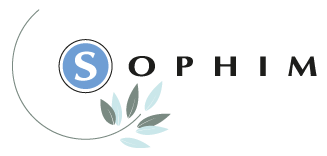Esterification is a chemical transformation used in the living world (both animal and plant), particularly in the biosynthesis of triglycerides. It was later studied from the Second Industrial Revolution onwards, with the work conducted by Marcellin Berthelot and Péan de Saint-Gilles in the 1860s, and quickly gained prominence in the fields of chemistry and cosmetics. Still indispensable today, it aligns with an eco-responsible and environmentally friendly approach. Sophim employs esterification: discover a chemical reaction essential to the production process of its cosmetic ingredients!
Esterification, a step in the production process of olive squalane
Sophim produces and markets a wide range of natural origin cosmetic ingredients. We carefully select our raw materials, favoring upcycling as a source of sustainable, reliable, and environmentally friendly sourcing. Derived from by-products of the food oleic industry, these raw materials undergo a series of steps to be transformed into high-quality cosmetic ingredients. Esterification generally occurs at the beginning of the process, as is the case in the production of vegetable squalane.
Separating unsaponifiables from saponifiables
The raw material used in the production of olive squalane consists of approximately 14% unsaponifiable molecules, including 10% squalene. The remainder consists of saponifiable molecules.
- Saponifiables can be converted into soap through the saponification process. Vegetable oils and butters are examples of saponifiables commonly used in cosmetics. The saponification process relies on a reaction between a saponifiable compound and an alkaline agent such as sodium hydroxide or potassium hydroxide.
- Unsaponifiables are compounds that cannot be converted into soap. However, many active ingredients used in cosmetics are found in the unsaponifiable fraction of a vegetable oil or a fatty substance. This includes carotenoids, sterols, tocopherols (vitamin E), and olive squalene: Phytosqualan is indeed a vegetable squalane extracted from the unsaponifiable fraction of olive oil, while Insapolive is a concentration of these unsaponifiables.
Extracting the unsaponifiables is a necessary preliminary step in the production of these two cosmetic ingredients manufactured by Sophim. Our teams use the esterification process to achieve this.
Increasing the molecular weight of the saponifiables through esterification
Fatty acids and esters from the saponifiable fraction have a volatility similar to that of squalene. Esterification is used to increase the molecular weight of these saponifiable molecules by combining them with an alcohol. It makes it easier to separate them from squalene in a second step through distillation.
At Sophim, we use glycerol, which is a bio-sourced alcohol, in our esterification process. The attachment of fatty acids to glycerol creates new molecules called triglycerides. They are esters composed of three fatty acids bound to glycerol.
Esterification: a process compatible with green chemistry
At Sophim, we are committed to offering you eco-friendly cosmetic ingredients, paying special attention to every step of the manufacturing process.
We use plant-based and biodegradable glycerol, which has three alcohol functions, for the esterification process. The fatty acids present in the saponifiable fraction of the raw material attach to each alcohol position on glycerol, forming a triglyceride. An average molecular weight fatty acid of about 280 g/mol is used to obtain a triglyceride of approximately 880 g/mol. Squalene does not react in the esterification process and retains its initial mass. It thus makes it lighter than the newly formed molecules.
With our unique expertise in olive squalane production in Europe, we have developed processes that adhere to the principles of green chemistry to offer you a final product that is as environmentally responsible as possible:
- An equimolar reaction (1 mole of alcohol function to 1 mole of fatty acid) that enables atom economy (90% atomic utilization) and yields >99%;
- Catalysis using sodium hydroxide (NaOH), an abundant compound of natural origin;
- Biodgradable reagents…
Both Phytosqualan and Insapolive are COSMOS NATURAL approved, an international label awarded to cosmetic products that are environmentally friendly and safe for human health, with compositions that do not include elements from the petrochemical industry (except for a restrictive list) or GMOs.
Sophim, producers of natural cosmetic ingredients.
Are you looking for emollients, texturizing agents, fixing agents, or cosmetic vegetable oils? Sophim offers a range of innovative natural cosmetic ingredients produced in Europe (France and Spain) in an eco-responsible approach. Discover a wide selection of references approved by COSMOS NATURAL, COSMOS ORGANIC, NATRUE, and HALAL. Our ingredients are developed for cosmetic brands that share our values and commitments!
Are you seeking a sustainable partner to support your growth? Contact our teams by phone at +33 (0)4 92 33 17 17, or send us a message online:
Category: Chemical expertise






